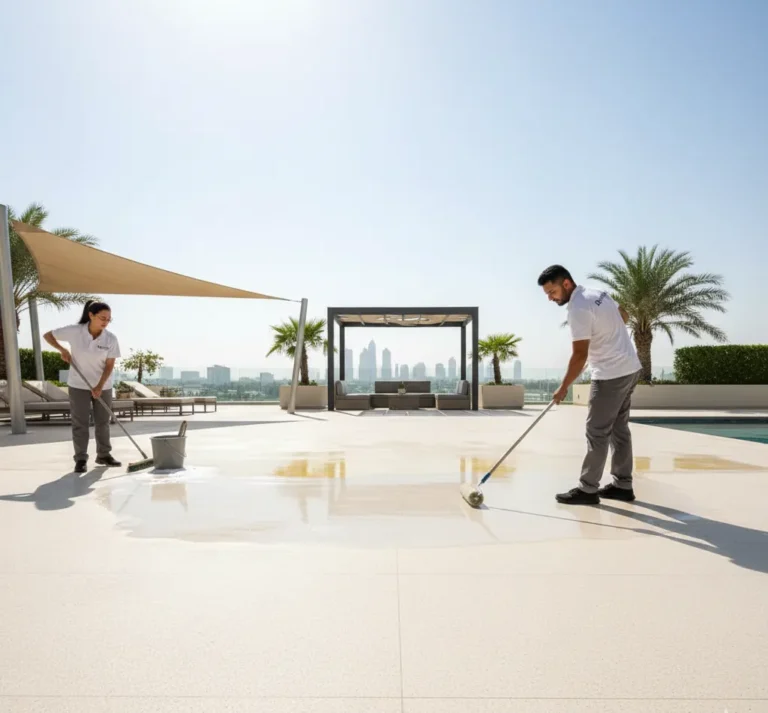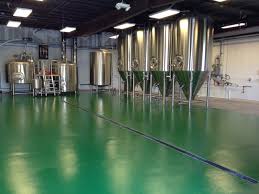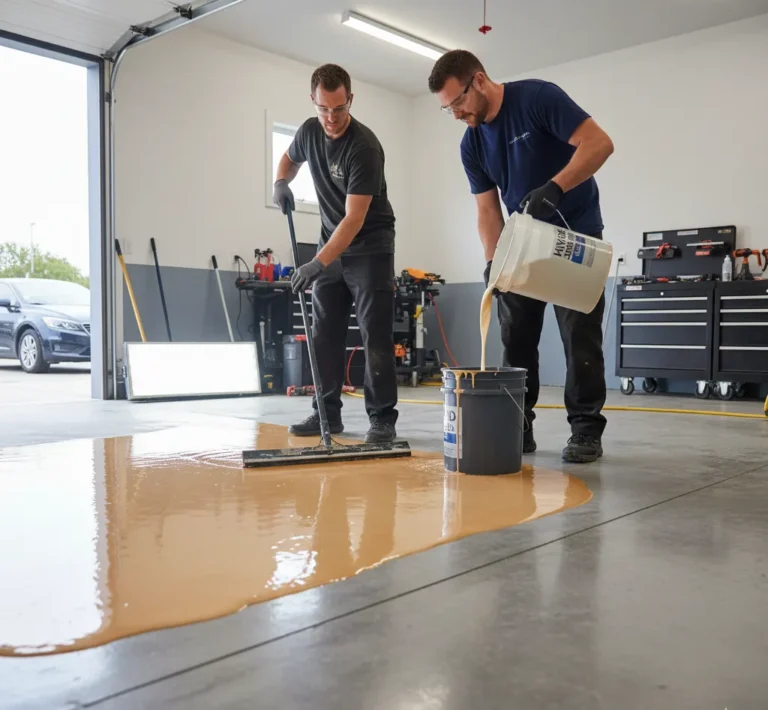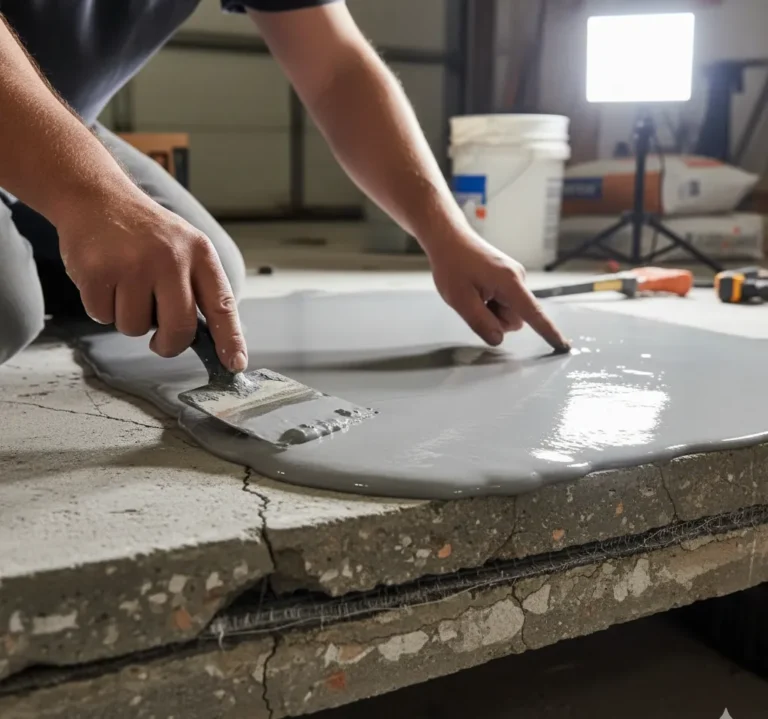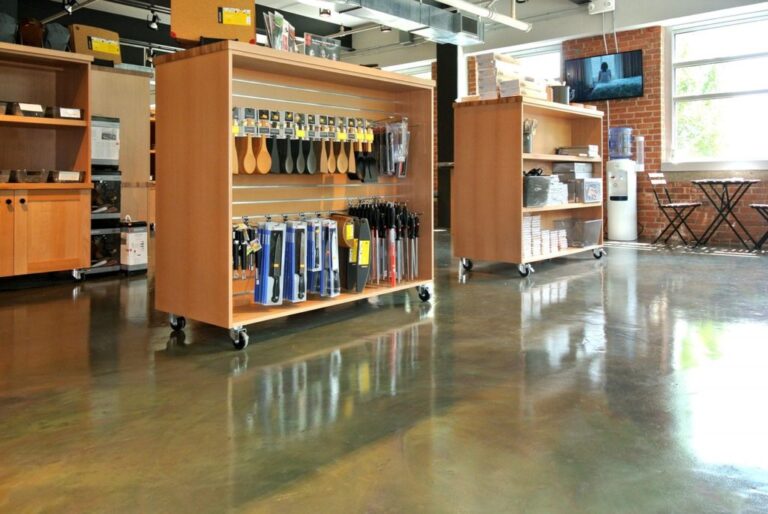Concrete flooring has emerged as a popular choice for homeowners and businesses alike, offering a blend of affordability, durability, and low maintenance. This article delves into the cost-effectiveness of concrete flooring, exploring its benefits, materials, and long-term savings potential.
Benefits of Concrete Flooring
Concrete flooring is renowned for its robustness and versatility. Unlike other flooring options, concrete can withstand heavy foot traffic and resist wear and tear, making it ideal for both residential and commercial spaces. Its adaptability allows for various finishes, from polished to textured, catering to diverse aesthetic preferences.
Moreover, concrete floors are hypoallergenic, as they do not harbor dust mites or allergens. This makes them an excellent choice for individuals with allergies or respiratory issues. The seamless surface of concrete also prevents the accumulation of dirt and grime, ensuring a cleaner environment.
- Durability: Withstands heavy use and resists damage.
- Versatility: Offers a range of finishes and styles.
- Hypoallergenic: Reduces allergens in the home.
Comparing Costs with Alternative Flooring Options
When it comes to cost, concrete flooring stands out as a budget-friendly option. The initial installation cost is often lower than that of hardwood or tile, and its longevity further enhances its value. While hardwood floors may require refinishing and tiles can crack, concrete remains steadfast with minimal upkeep.
In comparison to carpet, which needs regular replacement due to wear, concrete offers a more sustainable solution. The long-term savings on maintenance and replacement make concrete a wise investment for cost-conscious consumers.
| Flooring Type | Initial Cost | Maintenance Cost | Longevity |
| Concrete | Low | Low | High |
| Hardwood | High | Medium | Medium |
| Tile | Medium | Medium | Medium |
| Carpet | Low | High | Low |
Durability and Longevity of Concrete Floors
Concrete floors are built to last. According to the National Ready Mixed Concrete Association, with proper maintenance, concrete floors can last up to 100 years. This longevity is unmatched by most other flooring materials, which often require replacement or significant repairs over time.
The inherent strength of concrete makes it resistant to scratches, dents, and other common forms of damage. This durability ensures that concrete floors maintain their appearance and functionality for decades, providing excellent value for money.
- Long Lifespan: Can last up to 100 years.
- Damage Resistance: Resists scratches and dents.
- Consistent Appearance: Maintains look over time.
Affordable Materials for Concrete Flooring
Concrete flooring is not only cost-effective but also offers a range of affordable materials. The basic components of concrete—cement, water, and aggregates—are readily available and inexpensive. This accessibility contributes to the overall affordability of concrete flooring.
Types of Concrete Mixes for Flooring
Different concrete mixes can be used to achieve specific flooring characteristics. Standard mixes are suitable for most applications, while specialized mixes can enhance properties like strength or appearance. These variations allow for customization without significant cost increases.
Cost-Effective Additives and Reinforcements
Additives such as fibers or plasticizers can be incorporated into concrete to improve its performance. These cost-effective enhancements can increase the floor’s strength, reduce cracking, and enhance its finish, providing additional value without breaking the bank.
Sustainable and Eco-Friendly Concrete Options
Eco-conscious consumers can opt for sustainable concrete options. These include mixes with recycled materials or those that reduce carbon emissions during production. Choosing eco-friendly concrete not only benefits the environment but can also qualify for green building incentives.
- Standard Mixes: Affordable and versatile.
- Additives: Enhance performance and durability.
- Eco-Friendly Options: Reduce environmental impact.
Long-Term Savings with Concrete Floors
Concrete flooring offers significant long-term savings, making it an attractive option for budget-conscious homeowners and businesses.
Energy Efficiency and Thermal Mass Properties
Concrete’s thermal mass properties contribute to energy efficiency. It absorbs heat during the day and releases it at night, reducing the need for artificial heating and cooling. The U.S. Department of Energy reports that concrete floors can reduce heating and cooling costs by up to 25%.
Reduced Replacement and Repair Costs
The durability of concrete floors means fewer repairs and replacements over time. Unlike other flooring materials that may require frequent maintenance, concrete remains resilient, minimizing long-term expenses.
Increased Property Value
Investing in concrete flooring can enhance property value. Its durability and low maintenance appeal to potential buyers, making it a valuable asset in the real estate market.
- Energy Savings: Reduces heating and cooling costs.
- Low Maintenance: Fewer repairs and replacements.
- Property Value: Increases appeal to buyers.
Low Maintenance Requirements of Concrete Flooring
One of the standout features of concrete flooring is its low maintenance requirements. This makes it an ideal choice for busy households and commercial spaces.
Cleaning and Care Techniques
Concrete floors are easy to clean. Regular sweeping and occasional mopping with a mild detergent are usually sufficient to maintain their appearance. This simplicity reduces the time and effort required for upkeep.
Sealing and Protection Methods
Sealing concrete floors can enhance their durability and appearance. A quality sealant protects against stains and moisture, ensuring the floor remains in top condition. Re-sealing every few years is a simple process that extends the floor’s lifespan.
Minimizing Wear and Tear
To minimize wear and tear, consider using area rugs in high-traffic areas. This not only protects the floor but also adds a touch of warmth and style to the space.
- Easy Cleaning: Simple sweeping and mopping.
- Sealing: Protects against stains and moisture.
- Rug Use: Reduces wear in high-traffic areas.
What is the Average Cost Per Square Foot for Concrete Flooring?
The average cost per square foot for concrete flooring ranges from $3 to $8. This makes it one of the most affordable flooring options available. The final cost can vary based on factors such as the complexity of the design and the type of finish chosen. However, even with these variations, concrete remains a cost-effective choice for many.
Customization Options for Cost-Effective Concrete Floors
Concrete flooring offers a wide range of customization options, allowing homeowners to create unique and personalized spaces.
Staining and Coloring Techniques
Staining is a popular method for adding color to concrete floors. Acid-based stains create a natural, variegated look, while water-based stains offer a broader color palette. These techniques can transform plain concrete into a vibrant and stylish surface.
Stamping and Texturing Methods
Stamping and texturing add depth and interest to concrete floors. By using molds and tools, various patterns and textures can be imprinted onto the surface, mimicking the appearance of more expensive materials like stone or brick.
Polishing and Finishing Options
Polishing concrete floors results in a smooth, glossy finish that enhances the floor’s aesthetic appeal. This process also increases the floor’s durability and makes it easier to clean.
- Staining: Adds color and character.
- Stamping: Creates patterns and textures.
- Polishing: Provides a sleek, glossy finish.
Installation Process and Cost Considerations
The installation process for concrete flooring involves several steps, each with its own cost considerations.
DIY vs. Professional Installation
While DIY installation can save money, it requires skill and experience to achieve a professional finish. Hiring a professional ensures a high-quality result and can prevent costly mistakes.
Preparation and Subfloor Requirements
Proper preparation is crucial for successful concrete flooring installation. This includes ensuring a level subfloor and addressing any moisture issues. These steps are essential for preventing future problems and ensuring the floor’s longevity.
Time and Labor Factors
The time and labor involved in installing concrete floors can vary based on the project’s complexity. Simple installations may take a few days, while more intricate designs can require additional time and effort.
- DIY vs. Professional: Weigh cost savings against quality.
- Preparation: Ensure a level and dry subfloor.
- Time: Consider project complexity.
Environmental Impact of Concrete Flooring
Concrete flooring offers several environmental benefits, making it a sustainable choice for eco-conscious consumers.
Reduced Carbon Footprint
Concrete production has a lower carbon footprint compared to other flooring materials. Additionally, its long lifespan reduces the need for frequent replacements, further minimizing environmental impact.
Recycled Content Options
Many concrete mixes incorporate recycled materials, such as fly ash or slag, reducing the demand for virgin resources. This not only conserves natural resources but also diverts waste from landfills.
Indoor Air Quality Benefits
Concrete floors contribute to better indoor air quality by reducing allergens and pollutants. Unlike carpets, which can trap dust and allergens, concrete provides a clean and healthy environment.
- Low Carbon Footprint: Long lifespan reduces impact.
- Recycled Materials: Conserves resources.
- Air Quality: Reduces allergens and pollutants.
Concrete Flooring for Different Spaces
Concrete flooring is versatile enough to be used in a variety of spaces, each with its own unique requirements.
Residential Applications
In homes, concrete floors offer a modern and sleek aesthetic. They are ideal for open-plan living areas, kitchens, and bathrooms, where durability and ease of cleaning are paramount.
Commercial and Industrial Uses
In commercial and industrial settings, concrete floors provide the strength and resilience needed to withstand heavy machinery and foot traffic. Their low maintenance requirements make them a cost-effective choice for businesses.
Outdoor Concrete Flooring Solutions
Concrete is also suitable for outdoor applications, such as patios and driveways. Its weather resistance and ability to withstand temperature fluctuations make it an excellent choice for exterior spaces.
- Residential: Modern and easy to clean.
- Commercial: Durable and low maintenance.
- Outdoor: Weather-resistant and versatile.
Comparing Concrete Flooring to Other Materials
Concrete flooring offers distinct advantages when compared to other popular flooring materials.
Concrete vs. Hardwood
While hardwood floors offer a classic look, they require regular maintenance and can be prone to scratches and dents. Concrete, on the other hand, is more durable and requires less upkeep, making it a more practical choice for busy households.
Concrete vs. Tile
Tile floors can crack and require grout maintenance, whereas concrete provides a seamless and durable surface. Additionally, concrete can mimic the appearance of tile through stamping and staining, offering similar aesthetics without the drawbacks.
Concrete vs. Carpet
Carpet is soft and warm but can trap allergens and require frequent replacement. Concrete floors offer a hypoallergenic alternative that is easy to clean and maintain, providing a healthier living environment.
| Feature | Concrete | Hardwood | Tile | Carpet |
| Durability | High | Medium | Medium | Low |
| Maintenance | Low | High | Medium | High |
| Aesthetics | Versatile | Classic | Varied | Soft |
Addressing Common Concerns About Concrete Floors
Despite their many benefits, some concerns about concrete floors persist. Here, we address these common issues.
Comfort and Warmth
Concrete floors can feel cold and hard underfoot. However, using area rugs and incorporating radiant heating can enhance comfort and warmth, making concrete floors more inviting.
Noise Reduction
Concrete floors can amplify sound, leading to noise issues. Adding rugs, curtains, and other soft furnishings can help absorb sound and reduce noise levels in the space.
Moisture and Humidity Control
Concrete is susceptible to moisture, which can lead to issues like mold or mildew. Proper sealing and moisture barriers can prevent these problems, ensuring a healthy indoor environment.
- Comfort: Use rugs and heating for warmth.
- Noise: Soft furnishings reduce sound.
- Moisture: Seal and use barriers for protection.
Future Trends in Cost-Effective Concrete Flooring
The future of concrete flooring is bright, with advancements in materials and technology paving the way for innovative solutions.
Advancements in Materials and Technology
New developments in concrete mixes and additives are enhancing the material’s performance and sustainability. These advancements are making concrete an even more attractive option for modern flooring needs.
Innovative Design Possibilities
Designers are exploring new ways to use concrete in creative and artistic applications. From intricate patterns to bold colors, the design possibilities with concrete are expanding, offering endless customization options.
Integration with Smart Home Systems
Concrete floors are being integrated with smart home systems, allowing for features like underfloor heating and automated lighting. This integration enhances the functionality and convenience of concrete flooring in modern homes.
- Material Advancements: Improved performance and sustainability.
- Design Innovations: Expanding creative possibilities.
- Smart Integration: Enhances functionality and convenience.
In conclusion, cost-effective concrete flooring offers a compelling blend of affordability, durability, and low maintenance. With its wide range of customization options and long-term savings potential, concrete flooring is a smart choice for any space. Whether for residential, commercial, or outdoor use, concrete provides a versatile and sustainable solution that meets the needs of modern living.
FAQ’s
Are Concrete Floors Suitable for Homes with Radiant Heating Systems?
Concrete floors are highly suitable for homes with radiant heating systems. Their thermal mass properties allow them to efficiently store and distribute heat, enhancing the effectiveness of the heating system. This results in a comfortable and energy-efficient home environment.
How Long Do Concrete Floors Typically Last?
Concrete floors typically last between 50 to 100 years with proper maintenance. This longevity is due to the material’s inherent strength and durability. Regular cleaning and occasional sealing can further extend the floor’s lifespan, making it a long-term investment for any property.
